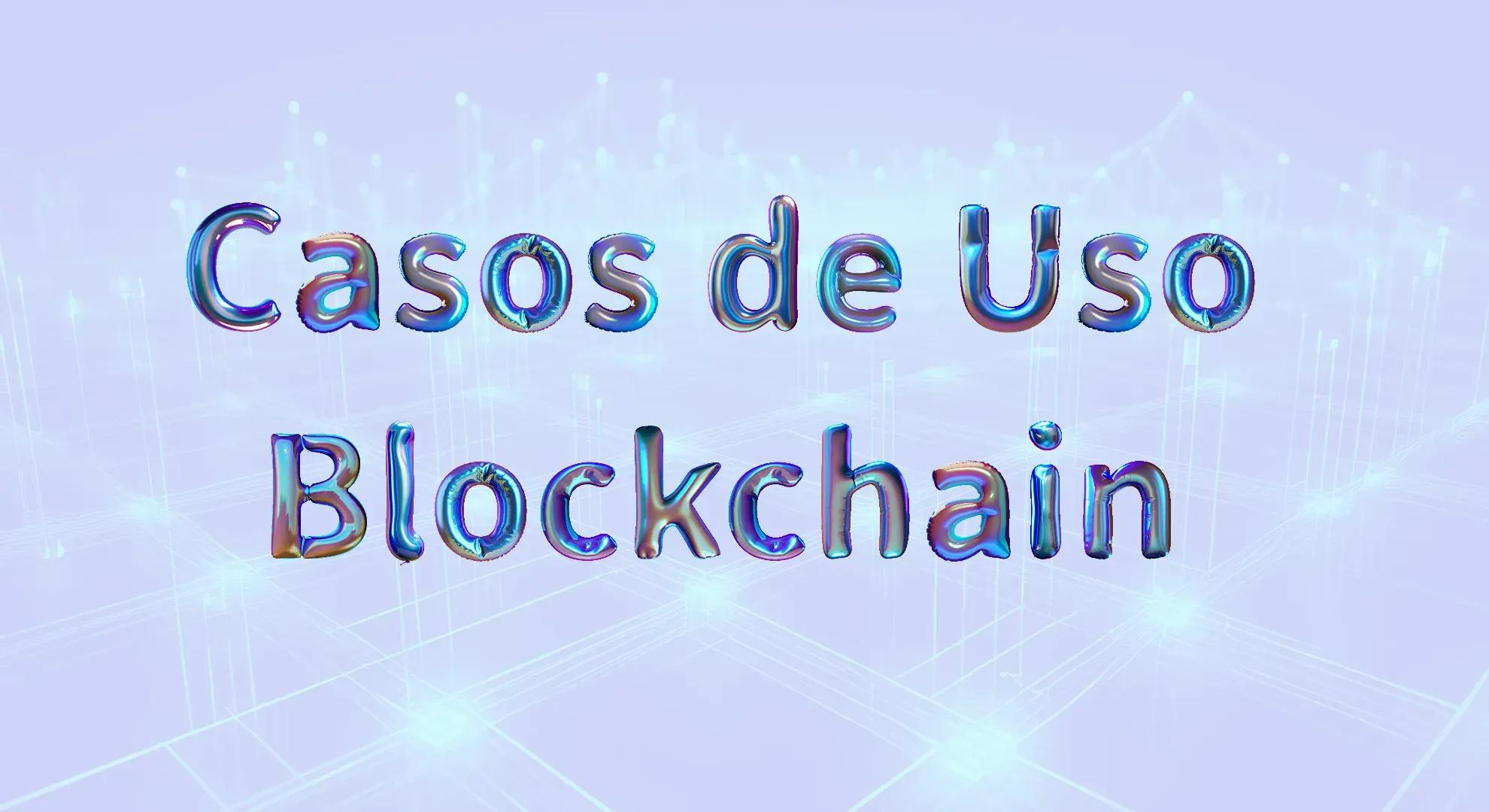Use Cases in Blockchain
The Evolution and Use Cases of Blockchain and DLT, an Updated View on My 2020 Article.
In my previous article, published in March 2020, I explored emerging use cases for blockchain and distributed ledger technologies (DLT) and how these technologies were beginning to transform different industries. If you are interested in reviewing it, you can access the article here: What can we use blockchain for: Use Cases and Examples.
More Than 4 Years Have Passed and Blockchain is Still Growing Slower than Crypto
Since the publication of my previous article, more than four years have passed and, although enthusiasm for blockchain continues to grow, its growth has been slower compared to that of cryptocurrencies. This phenomenon can be understood considering several factors that have influenced the adoption and development of this technology.
1. Implementation Complexity:
While cryptocurrencies like Bitcoin and Ethereum have clear and specific use cases (such as value exchange), blockchain as a technology has broader and more complex applications. Implementing blockchain-based solutions often requires a significant restructuring of existing systems and close collaboration between multiple stakeholders, which can slow down its adoption.
2. Scalability and Costs:
The scalability problem remains a significant challenge for many blockchain platforms. Although the technology has great potential, the limitations in processing capacity and the costs associated with maintaining decentralized networks have been barriers to its widespread adoption. This has made many projects focus on developing more efficient solutions before scaling up implementation.
3. Regulation and Legislation:
The lack of clear regulation and legal uncertainties have been another significant obstacle for blockchain adoption. Unlike cryptocurrencies, which have had a relatively clear regulatory path in some countries, blockchain applications in areas such as property registration or smart contract management often face legal challenges that can slow down their development.
4. Need for Education and Cultural Change:
Understanding and acceptance of blockchain in traditional sectors require a cultural and educational shift. Many organizations are still in the early stages of learning about blockchain and how it can be effectively integrated into their operations. This learning curve and the shift in business mindset can take time. On the other hand, at the talent level, finding skilled and qualified individuals is a significant challenge, not only due to the lack of experience with successful projects but also due to the cost of acquiring such profiles in the market today.
Use Cases and Successful Projects
Despite these challenges, blockchain technology has continued to advance and has found successful applications in various areas. Below, we explore some relevant use cases and standout projects making a difference in Latin America:
Physical Property Registration
In Colombia, through the National Land Agency, led by the Digital Public Innovation Center of the Digital Government Directorate, the Ministry of ICT, Peersyst, and the Ripple blockchain created the land notarization and control system. https://peersyst.com/case-study/colombia-land-blockchain-based-registry/Intellectual Property Registration
In 2021, the EUIPO (European Union Intellectual Property Office) launched the first Intellectual Property Registry platform in Blockchain in Europe. The EUIPO has launched blockchain-based platforms such as TMView and DesignView, improving security and speed in delivering information about intellectual property rights (IPR) TMView and DesignView,Medical Records
Mayo Clinic has announced its collaboration with the Dutch company Traill to initiate clinical trials using blockchain technology. This initiative aims to improve data integrity, transparency, and efficiency in clinical trial management. By using blockchain, the goal is to address common issues like data manipulation and lack of standardization in the collection of clinical information. The technology will enable secure and transparent tracking of patient data, also facilitating access and management for researchers and trial participants. This news was summarized from the Blockchain Council website. Here you can see my certificate from the Blockchain Council.Certificates of Origin
Origino is a tech startup offering blockchain tokenization and traceability solutions for supply chains. Its platform allows companies and producers to manage, track, and verify their productive assets through non-fungible tokens (NFTs). It also enhances transparency and trust in public documents and facilitates access to insurance and credits. Origino also provides services to verify the deforestation status of productive establishments and promotes innovation in product traceability such as beef, using QR codes and GS1 standards.Contracts, Agreements, Commitments
COLOP has developed the e-mark Secure, a solution to verify and authenticate physical and digital documents using blockchain. This device prints a unique QR code on documents, allowing users to scan it to verify authenticity through an application. The authentication information is encrypted and stored on the blockchain, ensuring it cannot be altered or deleted. The solution is currently in the testing phase and seeking participants for a pilot. Its applications include certificates, contracts, and identities.Carbon Footprint
uCrop.it offers a traceability solution called "Crop Story" that uses blockchain technology, satellite imagery, intelligent algorithms, and agricultural machinery data to document and verify sustainable practices in agriculture. This system allows producers and companies to securely and transparently register, monitor, and share achievements and sustainable practices throughout the cultivation cycle, from planting to harvest. Users can manage and visualize their activities through dashboard controls on the platform.University Degrees
The Champagnat University (UCh) started issuing blockchain-based certifications to recognize the academic excellence of their outstanding faculty in 2022. These certifications are presented in the form of non-fungible tokens (NFTs) and are issued in collaboration with BitMemoir, a platform specializing in digital credentials. The implementation of this technology ensures the authenticity and security of certifications, positioning UCh as an innovative institution in the educational field. Here you can see my MIT certificate in Design Thinking.
A Future with Slow Growth Towards 2030 but with Scalable Promise
Despite advances and growing adoption, it is likely that blockchain growth will remain slow until 2030. This is due to several factors, including the need to overcome technical and regulatory challenges, as well as the ongoing education and cultural shift necessary to integrate this technology into traditional sectors.
However, the promise of blockchain remains robust. According to the Market.us report on the blockchain technology market (https://market.us/report/blockchain-technology-market/), blockchain technology is expected to experience significant growth as companies and governments continue to explore and adopt its applications. The scalability of blockchain and its capacity to transform key industries such as supply chain, data management, and financial services are factors that fuel a promising future for this technology.
The path to widespread adoption may be gradual, but ongoing innovation and developments in blockchain promise a transformative impact across multiple sectors in the coming years. If you are interested in how blockchain can benefit your business or sector, I encourage you to stay informed and consider how you can be a part of this exciting evolution.


Comments